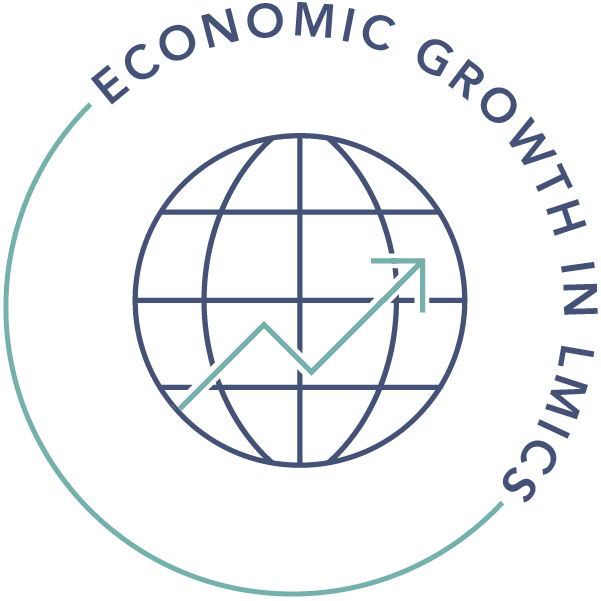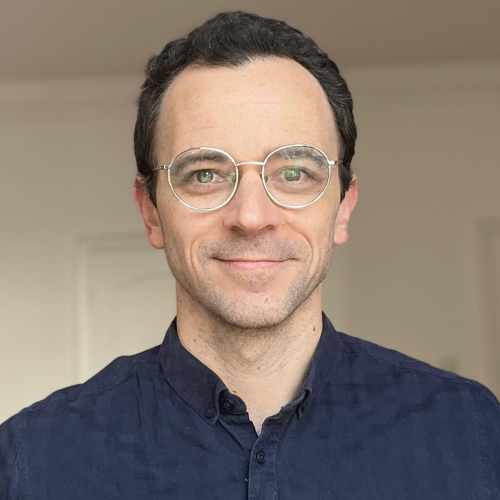Economic growth is central to improving the well-being of the global poor.

Economic Growth in Low- and Middle-Income Countries
We support work to accelerate economic growth and reduce poverty in low- and middle-income countries.
Almost 2 billion people around the world live on less than $3.65 a day: the poverty line for low- and middle-income countries (LMICs), as defined by the World Bank. Though there has been continuous debate over the precise policies that cause economic growth, there is a strong consensus among economists that it is central to poverty alleviation.
When incomes rise, people can afford more food and better housing, and spend more time on leisure. In turn, governments are able to invest more in public goods like education, health care, and infrastructure. Although economic growth is certainly not everything, and some growth episodes have reduced poverty more than others, few tools have the same potential to radically transform the lives of the poor en masse.
Initially, we were skeptical that philanthropy could help to accelerate economic growth in low- and middle-income countries. But before launching the program, we researched grant opportunities and consulted with external experts to further explore the space. The ideas we found — and the promising initial results of exploratory grantmaking — convinced us that we may be able to have a positive impact.
Potential grantmaking areas
- Support for in-country policy advocacy to help LMICs follow export-oriented growth paths. After the Second World War, Hong Kong, Singapore, South Korea, Taiwan, and later China grew rapidly through export-oriented manufacturing, progressing from exporting low-value-added goods like textiles to high-value-added products like microchips. Based on these events, a plausible theory of change is that supporting exports from developing countries (particularly in manufacturing) is a viable way to accelerate growth. While this path won’t always be appropriate, we see some instances where supporting advocacy for concrete policy changes could help to reduce the barriers faced by LMICs.
- Accountability and transparency measures for extractive industries. Economies that are overreliant on extractive resource industries like oil, gas, and minerals grow more slowly, exhibit greater corruption, and have weaker democratic institutions. Unfortunately, many of the world’s poor are concentrated in precisely these places, such as Nigeria, where oil accounts for over 90% of exports, or the Democratic Republic of the Congo, where total resource rents account for almost 40% of GDP. We hope to explore how philanthropic funding can strengthen independent accountability initiatives to help resource-dependent LMICs escape this traditional resource curse.
- Economic policy advice to national and subnational governments. Subsidizing economic policy advice will not be effective by default: political or institutional factors are more likely to constrain pro-growth policies than a lack of knowledge. However, in specific circumstances — for example, when there is a window of opportunity for reform, or a strong match between a potential advisor and a government — supporting sound economic policy advice may have a significant impact. This builds on our exploratory grantmaking in the area, such as supporting state-level work in India on economic development, policy design, and policy implementation, and supporting advocacy in Sri Lanka to promote growth-oriented reforms.
- Complementary research and advocacy in OECD countries to promote trade and investment ties with developing countries. One primary example of market access for developing countries includes the African Growth and Opportunity Act (AGOA), which was passed by the U.S. Congress in 2000 but is set to expire in 2025. AGOA gives sub-Saharan African countries duty-free access to the American market for a range of product categories — in particular, apparel, which has historically been a key stepping stone for countries pursuing export-led manufacturing growth. A strong AGOA renewal bill could improve the odds of an African industrial transformation. Another example includes efforts to promote sustainable development finance through initiatives to reform sovereign debt restructuring for LMICs. Over the past three years, a number of restructuring cases have faced significant delays, which exacerbate existing debt problems.
Attempts to impose policy from the outside are unlikely to succeed or achieve their stated goals; we see much more opportunity in engaging in active policy conversations led by local stakeholders. Under this program, we are particularly eager to identify potential grantees in LMICs who combine rigorous economic thinking with deep background in domestic policymaking.
Current grant ideas are neither final nor exhaustive, and our direction may change significantly as we develop our strategy. We hope that our new program will contribute to accelerating economic growth in LMICs — and, in doing so, help drive meaningful reductions in global poverty.
